
Armenia, Uzbekistan Share Lead In Open; India Leads In Women's
The 12th-seeded Armenia defeated the sixth-seeded Azerbaijan with a convincing 3-1 victory to reach 17 match points and become the joint leaders at the end of the 10th and penultimate round of the 44th FIDE Chess Olympiad. Dramatic developments in the fifth hour of play enabled the 14th-seeded Uzbekistan to save a 2-2 draw against the 11th-seeded India 2 to join Armenia in lead.
The top-seeded U.S., which defeated 21st-seeded Turkey by a 3-1 margin, and second-seed India, which defeated 13th-seeded Iran by a 2.5-1.5 margin, join India 2 on 16 match points to keep their medal hopes alive.
India defeated Kazakhstan by a 3.5-0.5 margin to continue to lead the FIDE Women's Chess Olympiad with 17 match points. Going into the last round, Poland, Azerbaijan, Ukraine, and Georgia are tied for second-fifth places with 16 match points.
Because the Open and Women's leaders are separated by just one match point from their second-place competitors, a high-pressure last round is in the offing in both sections.
How to watch the 44th FIDE Chess Olympiad
You can watch the 44th FIDE Chess Olympiad and FIDE Women's Chess Olympiad live on Chess.com/TV and on our Twitch channel, or catch all of our live broadcasts on YouTube.com/ChesscomLive.
You can also keep up with all the details of both events on our live events platform by following the respective links: 44th FIDE Chess Olympiad | 44th FIDE Women's Chess Olympiad.
- Olympiad Captains
- Open Section
- Women's Section
Olympiad Captains
It is difficult to define the role and impact a captain can have on a team. An active captain can do a lot: pre-tournament training, deciding the board order, everyday opening preparation, attending to everyone's individual needs, psychological consultations (counselings!), presence during the games and finally, a pat on the back after a game. But all of this is generally subtle: the outside world never knows the full extent of the work of a captain unless we see it at the playing arena. The penultimate round brought it all in the open, as the battle for medals took dramatic proportions:
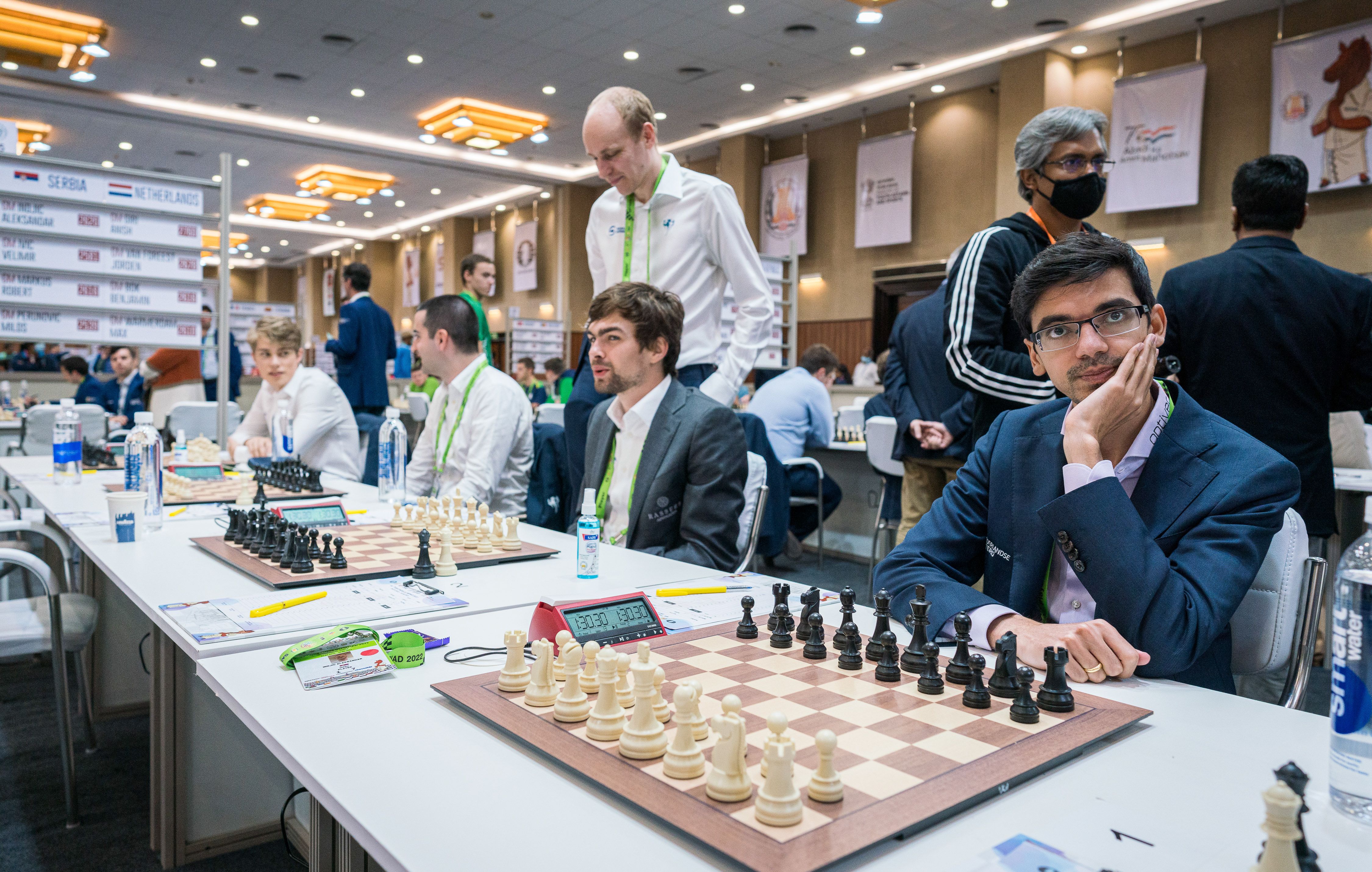

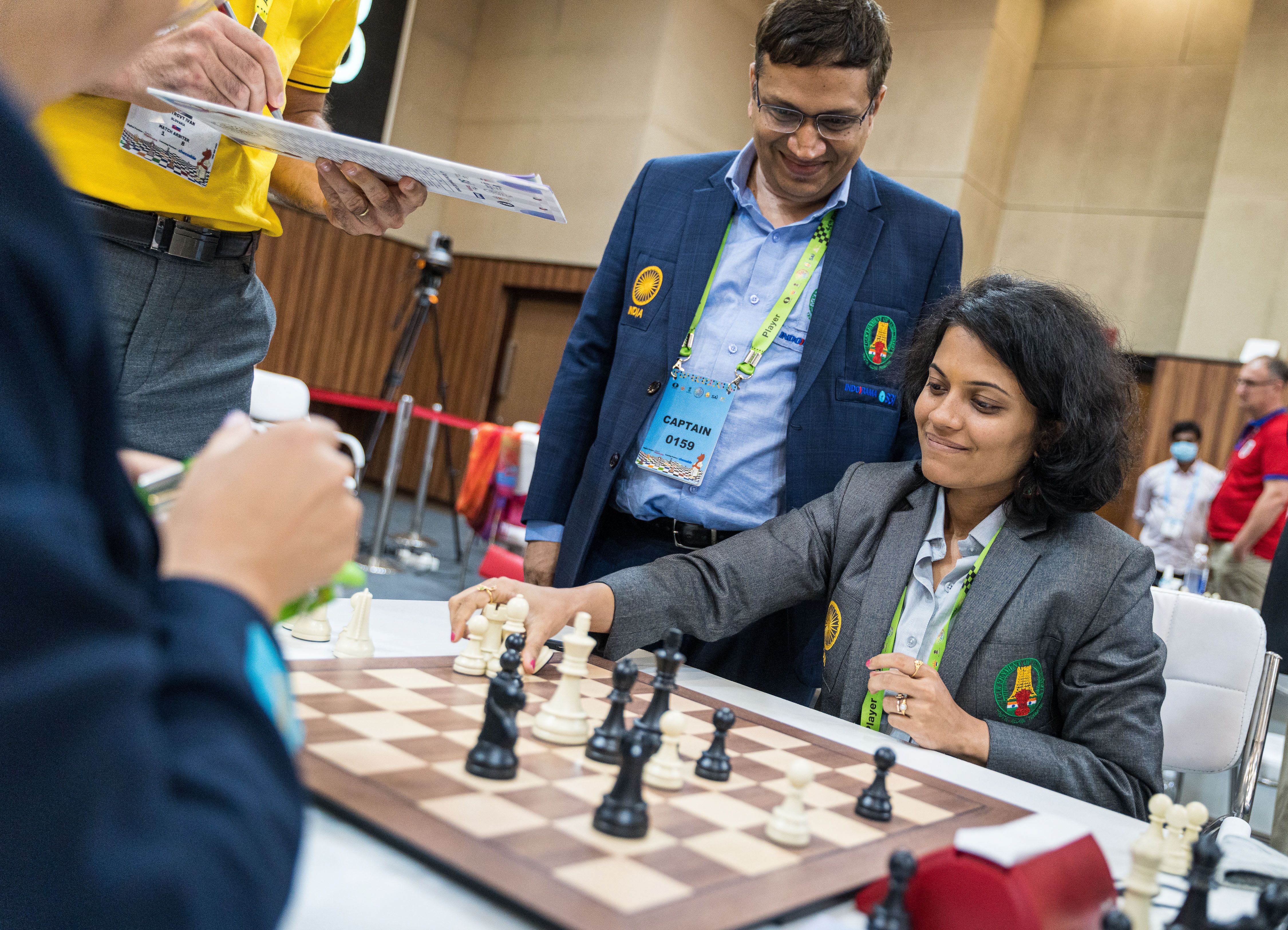

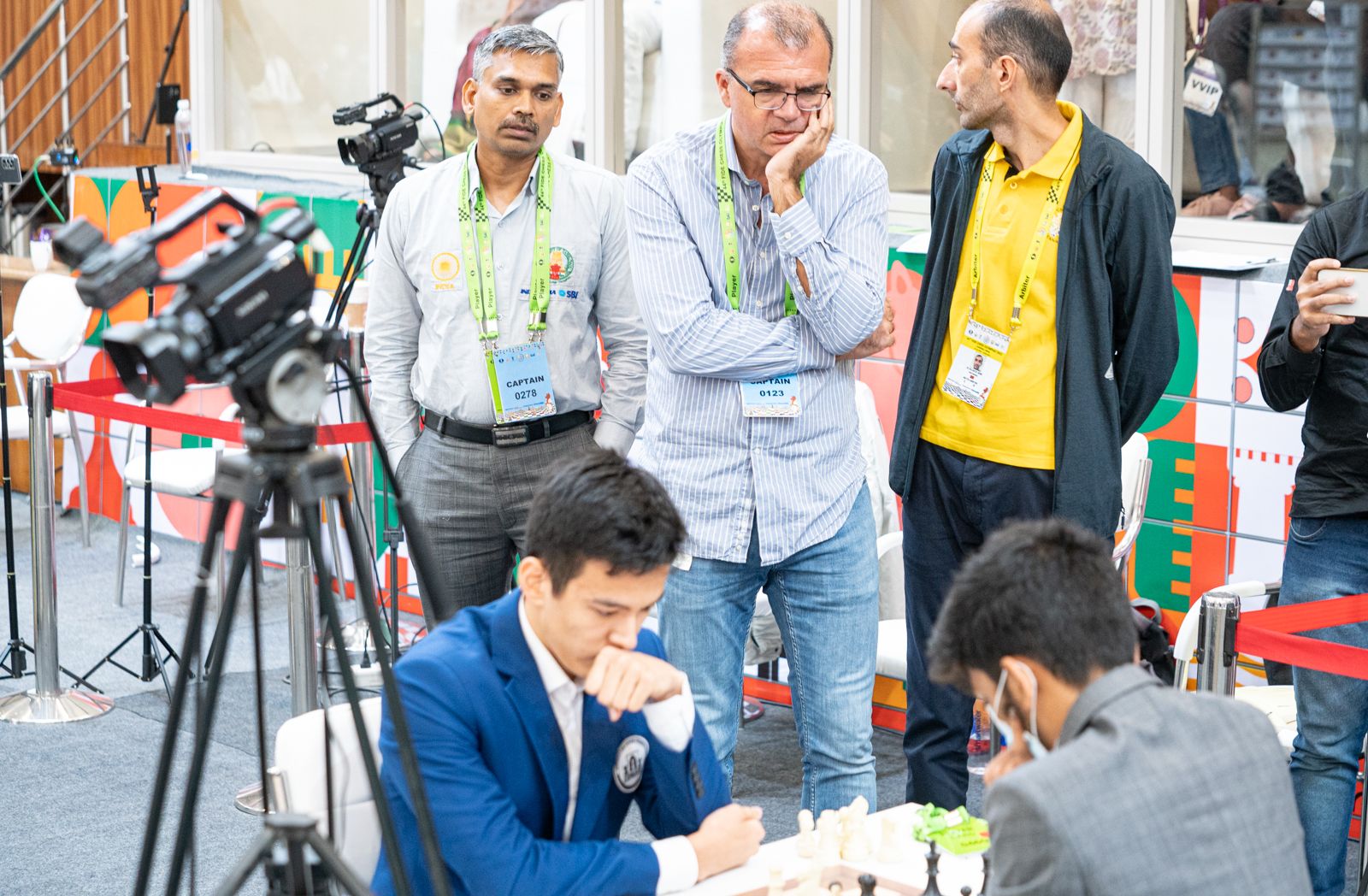


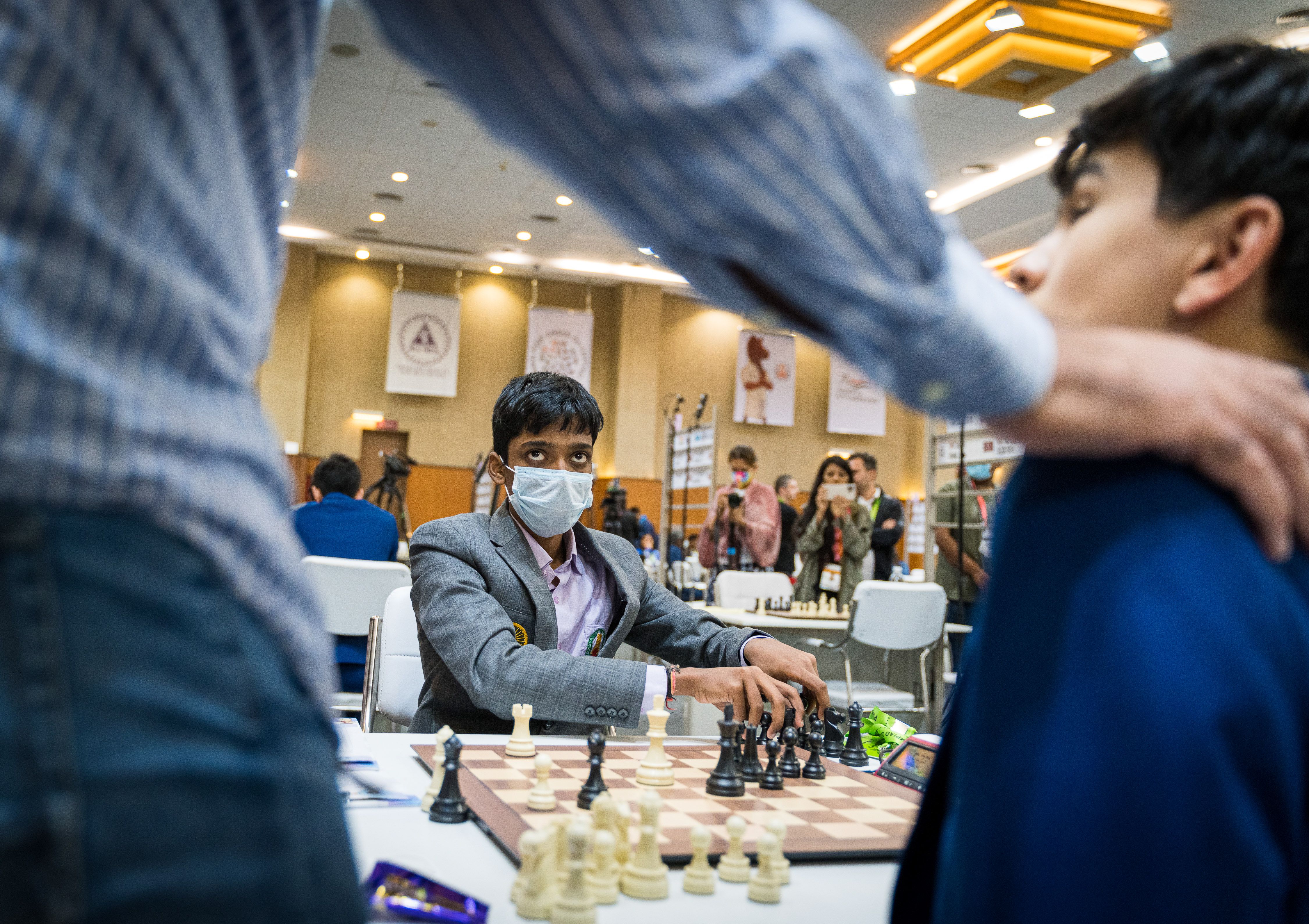
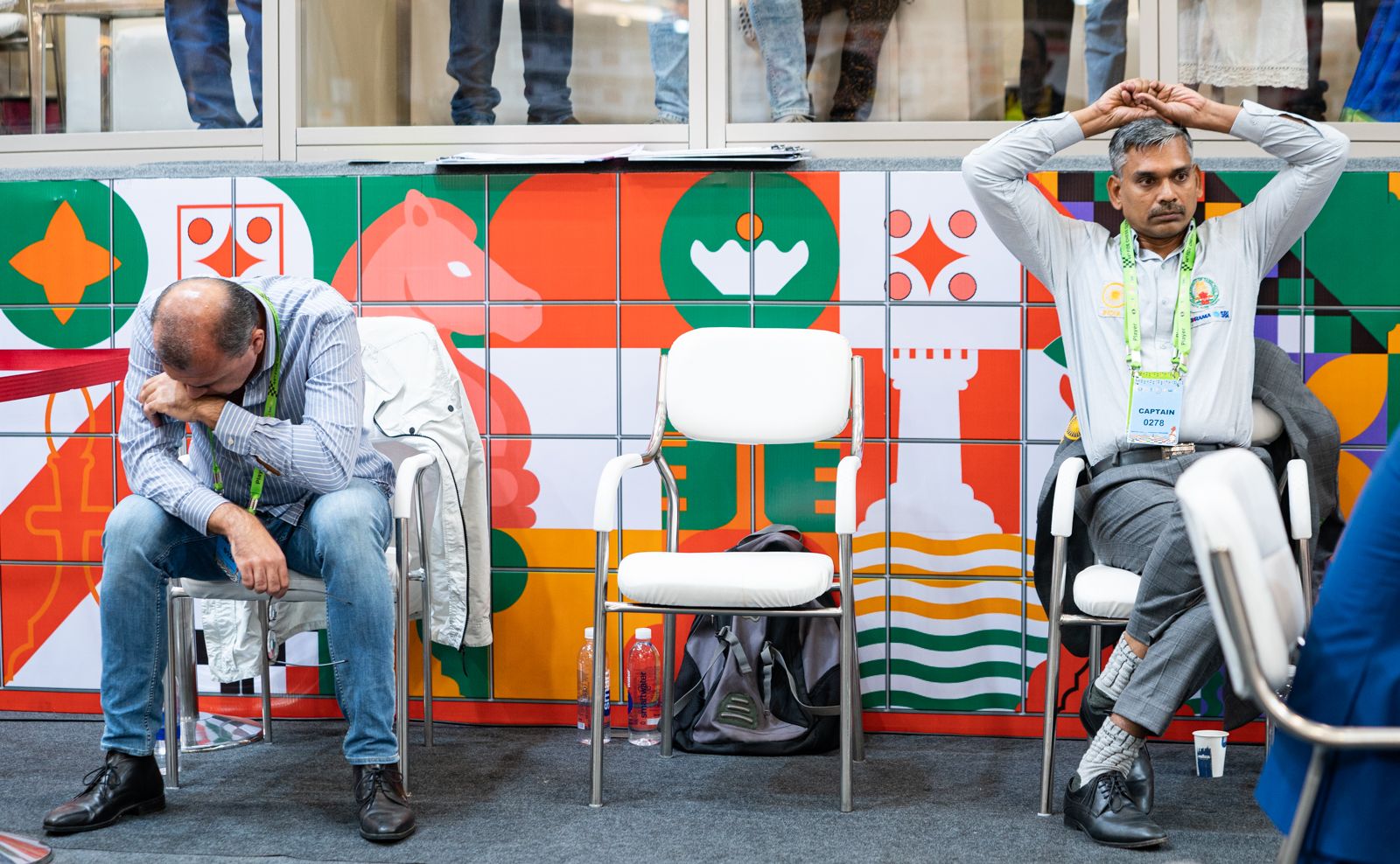
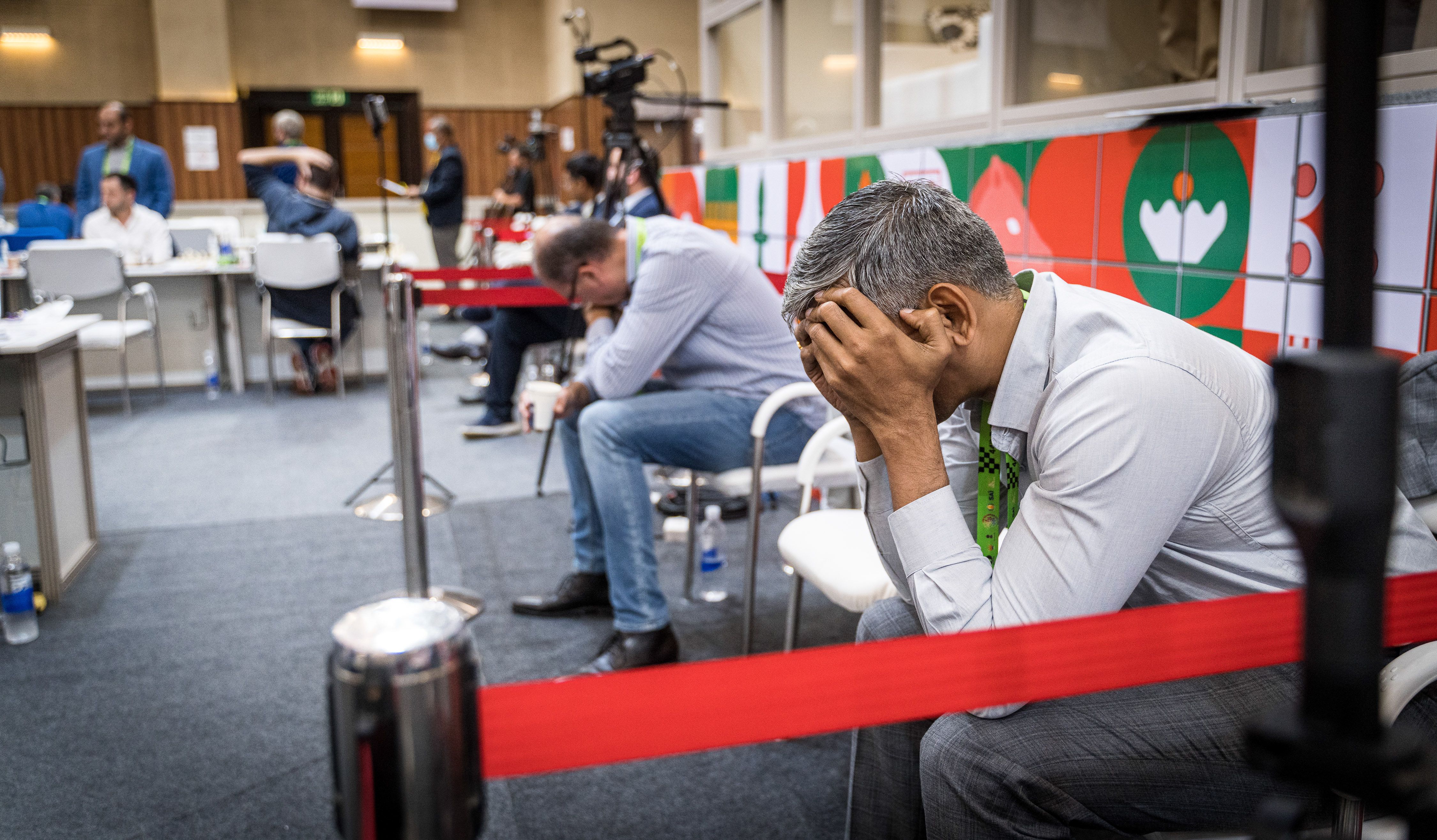
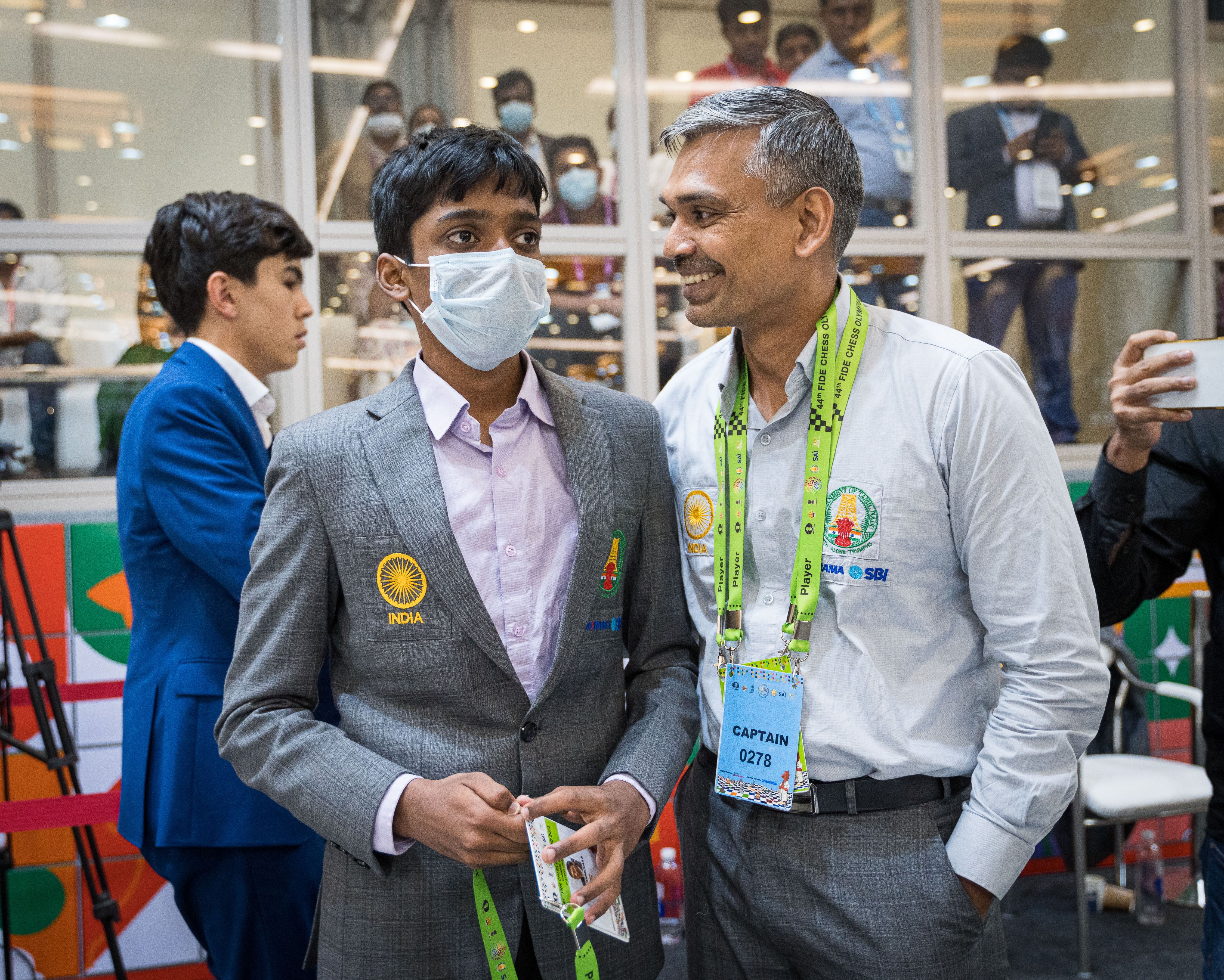
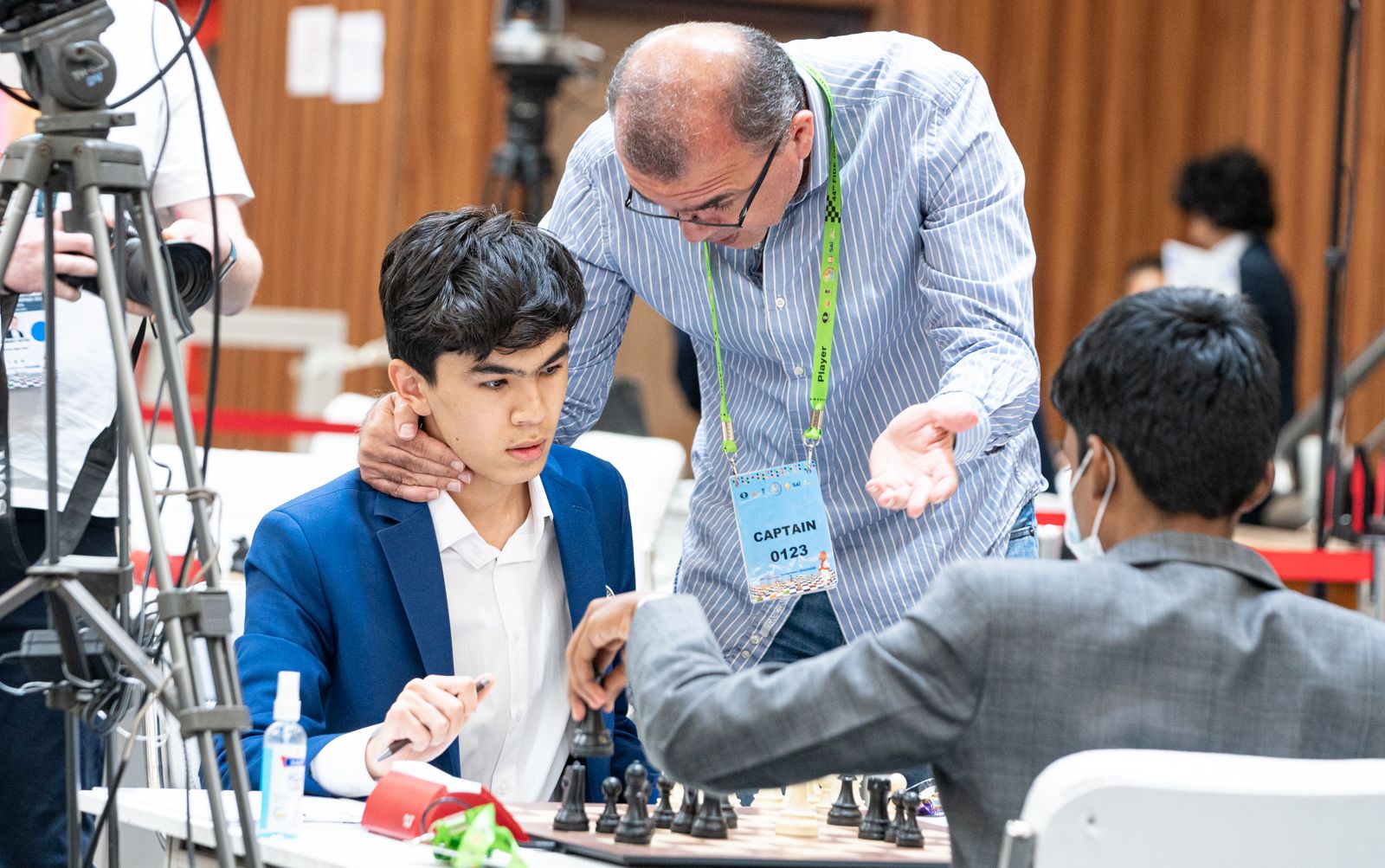
Open Section
With the black pieces, GM Gabriel Sargissian scored a fine victory over GM Shakhriyar Mamedyarov on the top board when the latter erred in the early stages of the game:
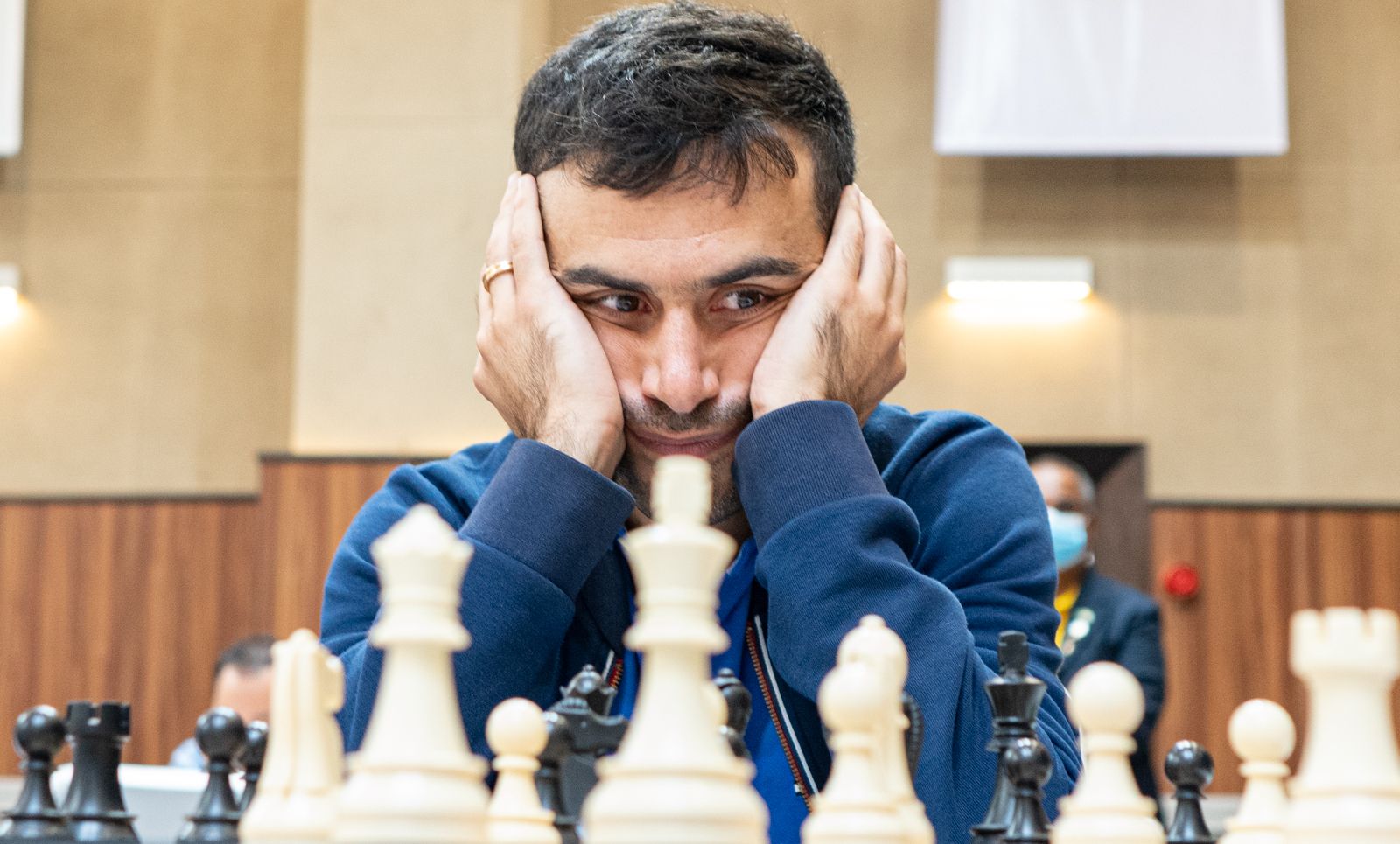
GM Robert Hovhannisyan defeated GM Nijat Abasov to enable Armenia to continue its fine run in the tournament:
The clash between two teams of youngsters, India 2 and Uzbekistan, was the highlight of the round. The early sparks came from GM Baskaran Adhiban, who decided to let his hair down and play a highly risky opening probably backed up by deep engine-aided preparation:
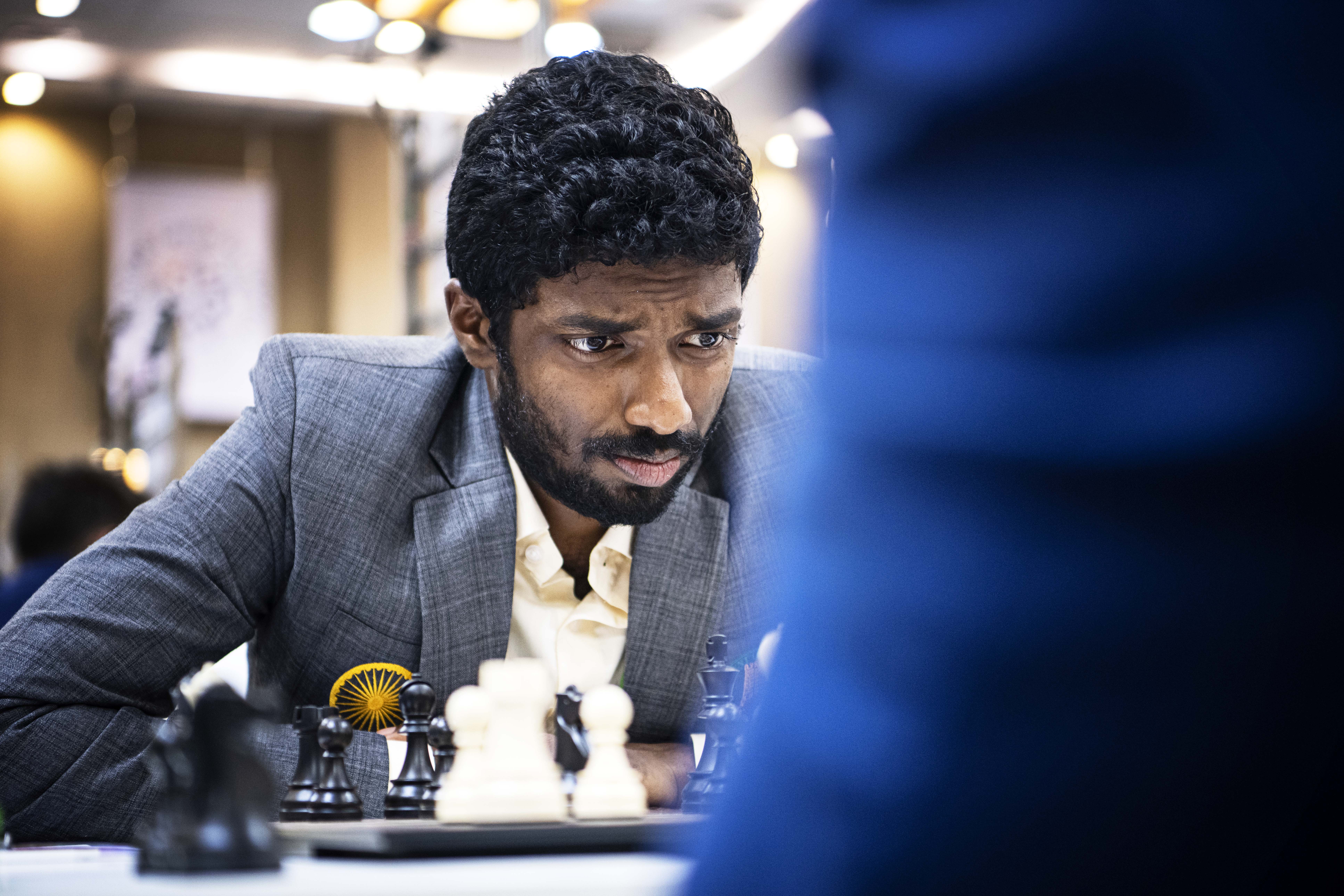
After GM Nodirbek Yakubboev vs. Nihal Sarin also ended in a draw, India 2 seemed to be sailing smoothly, as they held winning positions in the remaining two games. GM Praggnanandhaa Rameshbabu indeed converted his advantage. The curious part of his game is that it featured a complicated rook and pawn vs. bishop ending that every coach in the world teaches to a promising youngster, while secretly knowing it would never pop up in practical play:

The fateful encoounter between GM Dommaraju Gukesh and GM Nodirbek Abdusattorov is the most dramatic game of the round and our game of the day, and it ended tragically for the former:
After his blunder on the last move of the game, Gukesh kept his hands on his eyes, and just let the clock run. It was a distraught Gukesh who signed the scoresheets and left the arena, while Abdusattarov was overjoyed with his effort.
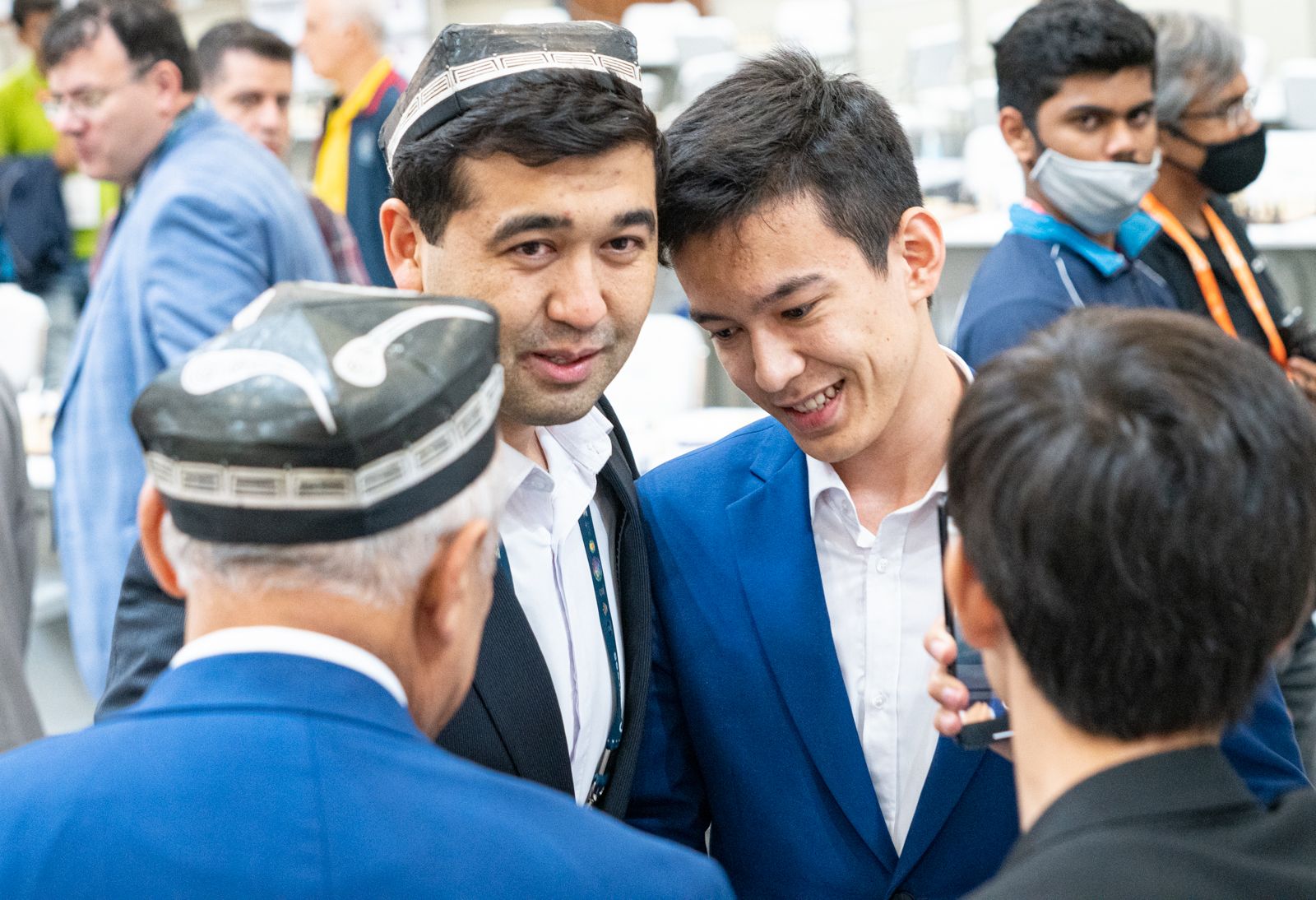
The U.S. seemed to be too strong for Turkey, as both GM Fabiano Caruana and GM Leinier Dominguez gained advantages and seemed to cruise to their wins:
India defeated Iran mainly due to the pivotal game between GM Vidit Gujrathi and GM Amin Tabatabaei, where the uneven play near the time control resulted in a lost ending for Black. This is Vidit's first victory after a win in the first round and seven straight draws in this tournament:
GM Viktor Erdos (rated 2586) of Hungary scored a 19-move victory over GM Anton Korobov of Ukraine in 19th-seeded Hungary's 2-2 draw against eighth-seeded Ukraine:

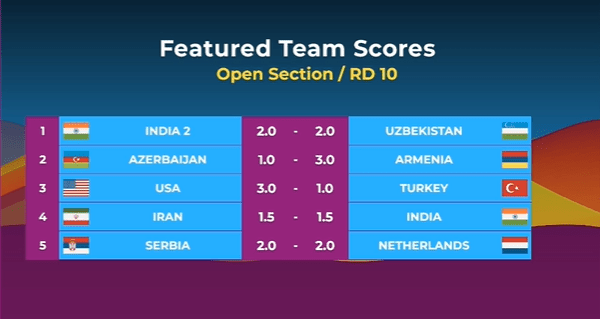
See full results here.
Women's Section
Top-seeded India defeated another new joint leader, 10th-seeded Kazakhstan, comprehensively by a 3.5-0.5 score. IM Tania Sachdev's game is the most spectacular:
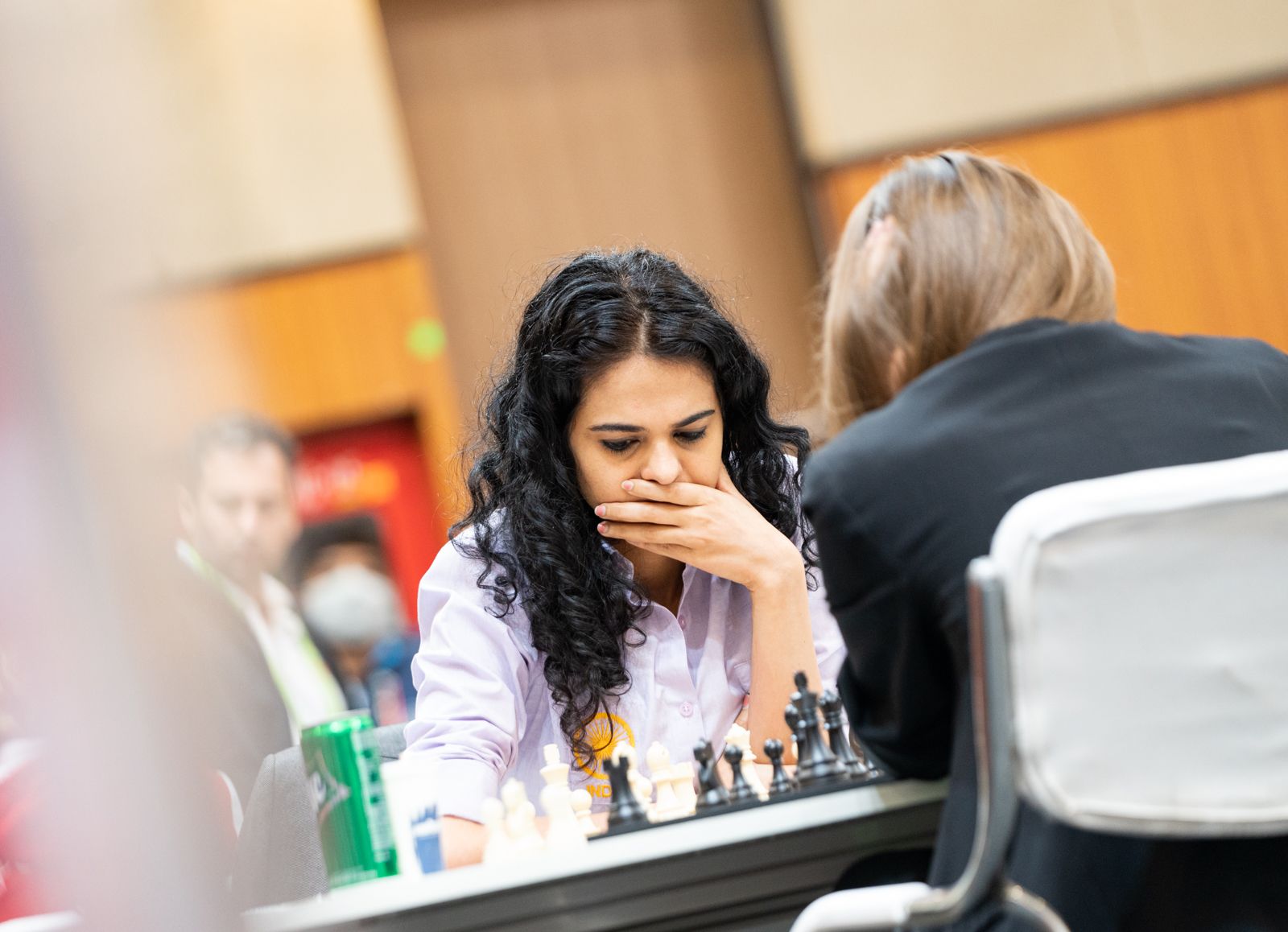
In the second-table battle against Georgia, Poland seemed to gain the upper hand when FM Maria Malicka defeated IM Salome Melia in a clean game:
But Georgia equalized the score to 2-2 thanks to a late blunder by GM Monika Socko, thus enabling India to become the sole leader again:
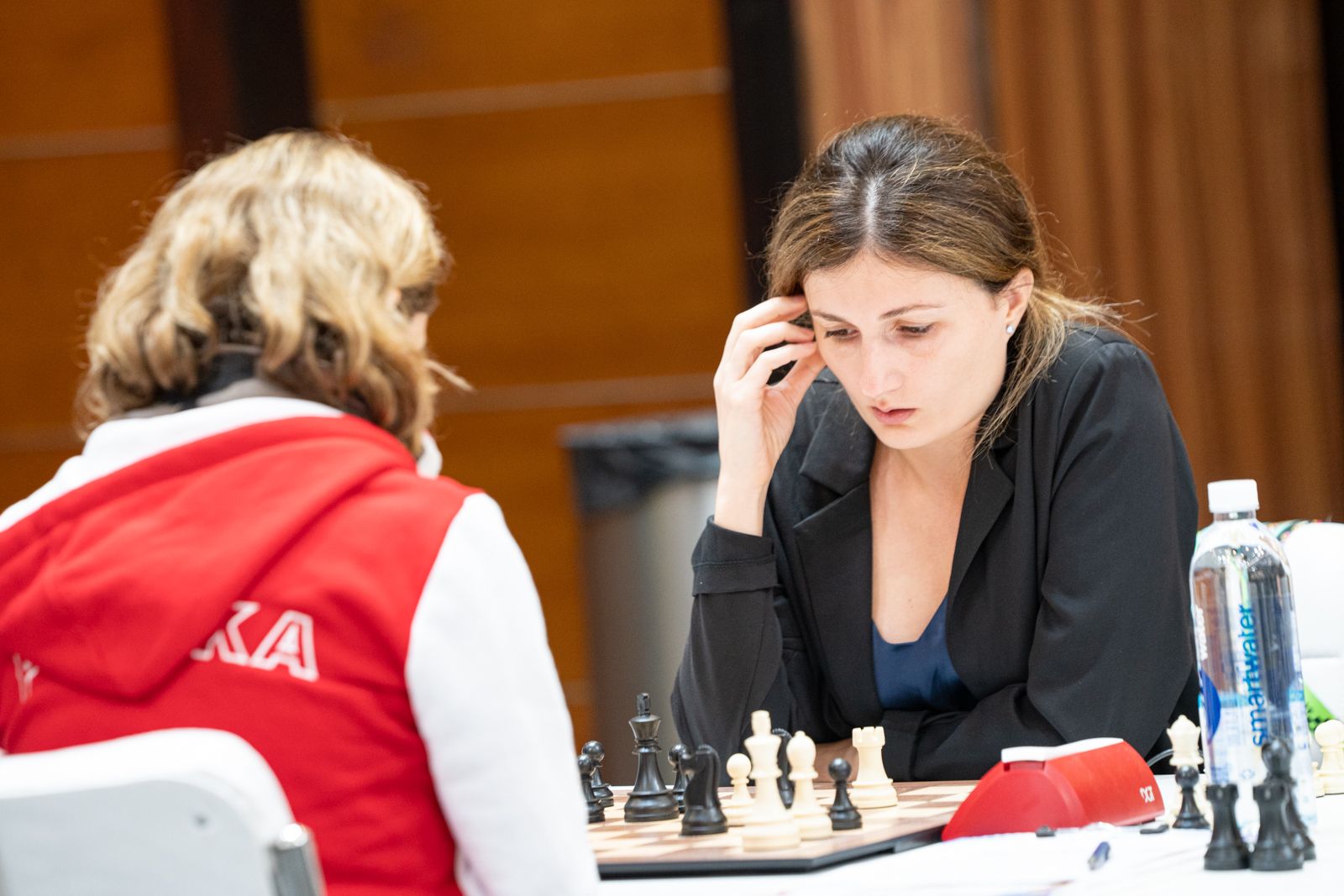

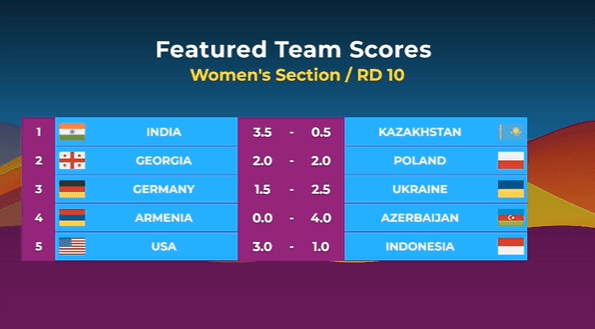
See full results here.
The 44th FIDE Chess Olympiad and Women's Chess Olympiad are over-the-board team events where national chess federations compete in classical games for gold medals, trophies, and the title of strongest chess nation in the world. The event consists of an 11-round Swiss tournament where each player from a national team plays against another player from the opposing national team. Teams receive "game points" for winning or drawing games and "match points" for winning or drawing a match. Teams with the most match points for each section become the champions of their section, with a third award going for the team with the most points from both sections combined.
Previous Coverage:
- Uzbekistan Jumps To Lead In Open; Four Share Lead In Women's; Kiolbasa Advances To 9/9
- Armenia In Open, India In Women's Maintain Lead; Gukesh Defeats Caruana To Score 8/8
- Armenia Retains Lead In Open; India Widens Lead In Women's; Gukesh 7/7
- Armenia Sole Leader In Open, India In Women's, Gukesh 6/6 On Top Board
- India 2, Armenia Lead Open; India, Georgia, Romania Lead Women's
- Held By Uzbekistan, U.S. Survives Scare; Abdusattorov Shocks Caruana
- Italy Shocks Norway On Day Of Endgames, Estonian Grandmaster Faints At Board
- Favorites Continue With All Wins
- Nearly Smooth Sailing For Top Seeds In Day Of Zugzwangs
- 44th FIDE Chess Olympiad Inaugurated In Chennai, India
- 44th FIDE Chess Olympiad: All The Information
- 44th FIDE Women's Chess Olympiad: All The Information


